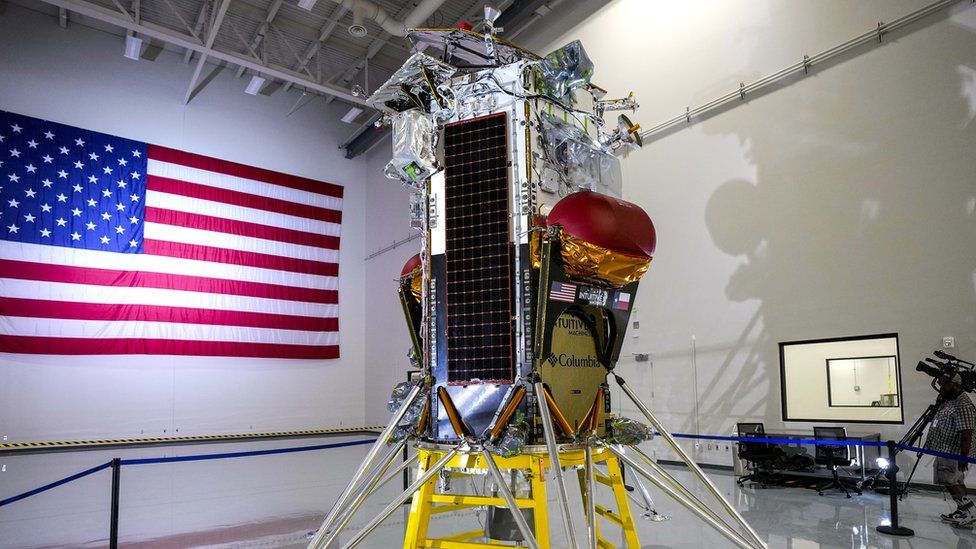-

-
-
Loading

Loading

A privately-owned spacecraft has taken off from Cape Canaveral, Florida with the mission to land on the Moon. If successful, this would make Intuitive Machines the first private company to achieve such a feat, as all previous landings have been conducted by national space agencies. The spacecraft, named Odysseus, aims to land on the lunar surface's south pole, where scientists hope to find a source of water. This mission is the second commercial endeavor funded by NASA, as the agency aims to encourage private missions to the Moon and expand its presence in space. The launch took place at 01:05 EST (06:05 GMT) using a Falcon 9 rocket made by Elon Musk's SpaceX. The first stage of the rocket was successfully released and returned to Earth. The spacecraft had previously encountered setbacks due to weather conditions and irregular methane temperatures, prompting two mission postponements. Intuitive Machines emphasizes the need for humility and learning from previous lunar missions to ensure success. The lander is equipped with various scientific instruments, including a tool to measure the impact of the landing and a camera to capture images during touchdown. Additionally, it carries commercial payloads, including miniature sculptures created by artist Jeff Koons. The spacecraft is roughly the size of an old British phone box and will take about a week to reach the Moon, aiming to land approximately 186 miles away from the south pole on the near side. This would mark the first American spacecraft to land in that specific area, which is of interest to scientists due to its potential for frozen water. Intuitive Machines plans to send another spacecraft in March to drill for underground ice. NASA's initiative to foster private missions to space has already funded one mission by Astrobotic, which unfortunately failed in January due to a fuel leak. The goal is to create a marketplace in space while maintaining cost consciousness. Two other private companies, SpaceIL from Israel and Japan's Hakuto-R, have previously attempted lunar missions but experienced crash-landings resulting in the destruction of their spacecraft.